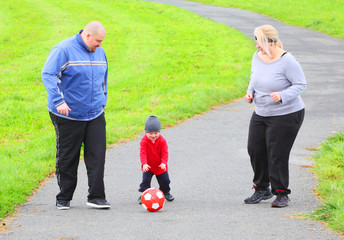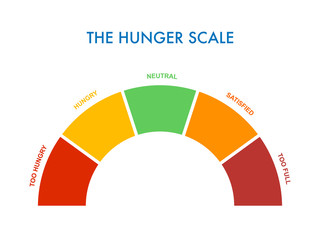
How to Lose Weight in a Month
Wasting time and money on diets hasn’t worked. Here’s why.
Sometimes you need to lose weight fast. We’ve all been there. Whether it’s for a New Year’s resolution or a summer reunion you plan on attending, weight loss goals are common in our culture. You establish your initial weight loss plan, but it becomes hard to sustain as time goes on.
Losing your motivation makes it difficult to achieve your goals. You start with energy and enthusiasm, and after a while, that enthusiasm wears off. This is the primary reason why diets don’t work. The missing element needed to keep you motivated is emotion. When you are emotionally committed to something, you are more likely to stay with it.
Why do you want to lose weight anyway?

There are hundreds of reasons to lose weight. But goals tied to superficial reasons, like physical appearances, rarely provide enough motivation to make changes in your eating habits that will last a lifetime. You have to become emotionally invested.
Whenever anyone asks me why I am so health-conscious, I tell them about my father, who passed away when he was 54 of a heart attack. I tell them I want to be here for my family. I also want to change the course of my family’s health.
To make a real lifestyle change that results in losing weight quickly and keeping it off, you have to find your motivation. Motivational fuel based on shallow and superficial things, like looks, will not last. I advise you to search within. Find that meaningful motivation with emotion attached to it, and use it.
Three simple steps to lose weight in a month
-
The Hunger Fullness Scale

This first tool is simple to incorporate into your everyday life. It can make achieving your weight loss goals much easier if appropriately utilized.
Develop a hunger fullness scale to regulate eating habits. On a scale from one to five, number one means you are starving, and five means you are stuffed. It would be best to never wait until you’re at one to eat. It would also help if you stopped eating before you got to five. Always stay between two and four. Eat when you start getting hungry (two) and stop eating when satisfied (four).
We tend to overeat with larger portion sizes when we are starving. Then the neurological signals sent from the stomach to tell the brain we are full can’t react fast enough. That is one of the reasons you overeat. The best thing you can do is limit the amount of food available to eat when you are starving. You can cook a single-serving meal or stop and get a single sub from Subway on the way home.
-
Stop the late-night meals
Stop eating at least 3 hours before going to bed. If your usual bedtime is 10 pm, you should finish eating dinner by 7 pm. It allows your body more time to digest your food before going to sleep. It also means you will go longer, around ten hours, without consuming any calories.
-
Bank those calories
You must keep track of your calorie consumption when trying to lose weight. Counting calories for weight loss can be done manually or simplified by using one of several available free apps.
One of the significant challenges you run into will be eating out. Restaurant foods are typically very high in unhealthy calories and fat.
Eating out too often can derail your goals of losing weight. Trying to avoid eating out with family and friends can be difficult. Saying no to these social gatherings may likely give you second thoughts about your goals. You may feel you’re missing out on some of these more enjoyable activities in life. Here’s how I’ve been managing this for years.
Eating out at restaurants usually results in high-calorie consumption. You can bank those calories ahead of time so they are available when you go out to eat. When you know you’re going out to eat with friends on a Saturday night, for example, plan by eating low-calorie meals the day before, in addition to any meals you may have earlier that day. By doing this, you can order anything on the menu you want.
You may eat 1500 calories that evening, but you can still manage to have a calorie deficit for your two-day average. If you decide to eat out on short notice, you can achieve the same results by eating light the next day.
Look at the big picture
Never evaluate your eating habits daily. It would be best to assess how you’ve done over several days or a week to determine how disciplined you were. Don’t be too hard on yourself if you have a terrible couple of days or weeks. Just get back on course. If you implement these simple steps, you will lose weight. Over time these actions will become habits. These new healthy eating habits will cause you to maintain your weight for many years.






